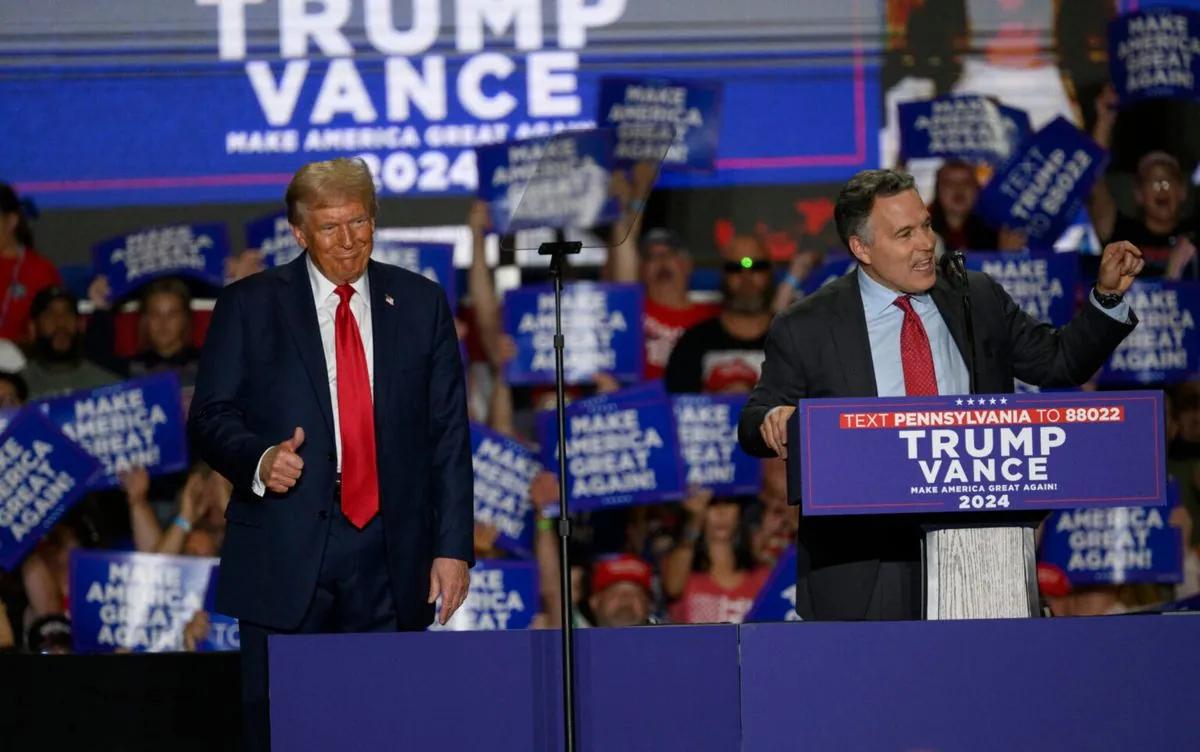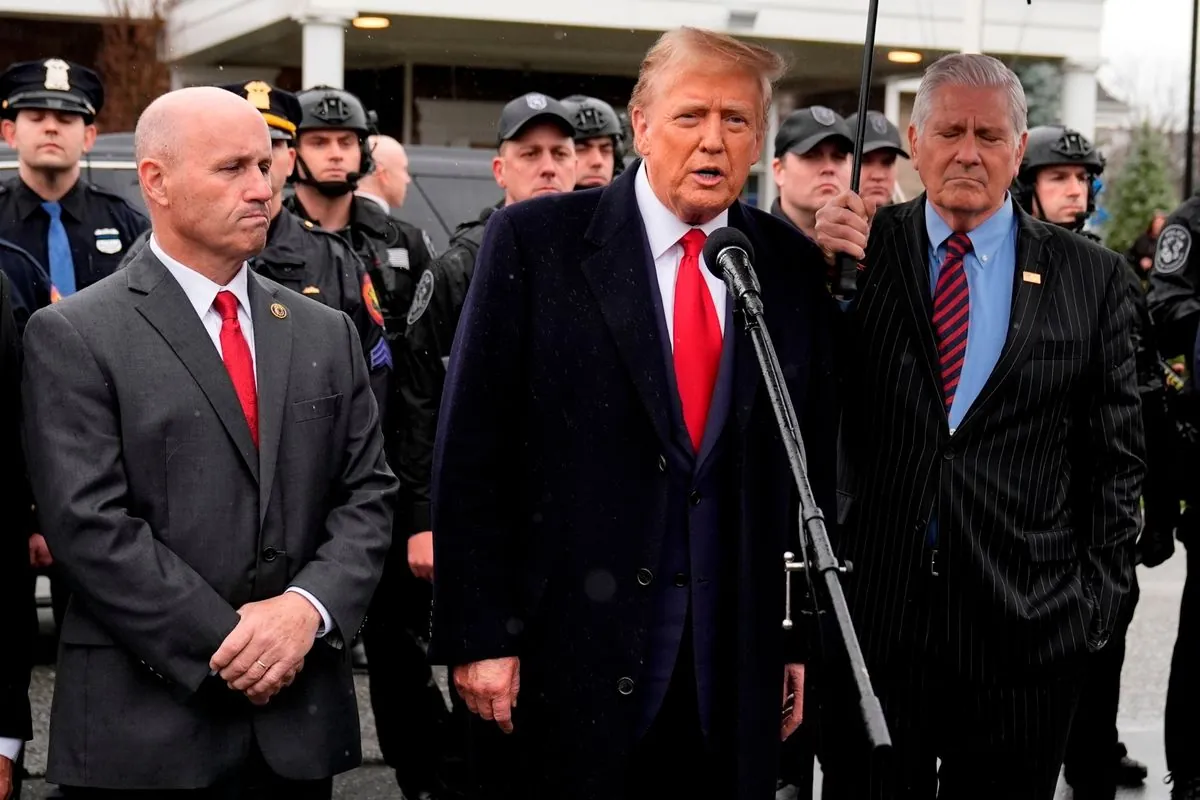Trump's Controversial Stance on Crime and Justice Raises Concerns
Former President Trump's recent speech in Erie, PA, advocating for extrajudicial measures to combat crime, has sparked debate. His comments reflect a history of controversial views on law enforcement and justice.

Donald Trump's recent appearance in Erie, Pennsylvania, has once again thrust his controversial views on crime and justice into the spotlight. The former president's proposal for addressing what he perceives as rampant crime has raised eyebrows and sparked debate among legal experts and citizens alike.
During his speech, Trump misrepresented a California law, claiming it allows theft up to $950 without consequences. In reality, a 2014 voter initiative reclassified such thefts as misdemeanors rather than felonies, partly to address prison overcrowding. This initiative reflects a broader trend in criminal justice reform, which has been ongoing since the 1970s when the concept of restorative justice gained traction.
Trump suggested that "one really violent day" or "one rough hour" would effectively deter crime. This statement aligns with his history of endorsing punitive policing measures. In 2017, Trump made controversial remarks to a group of officers, seemingly encouraging rough treatment of suspects during arrests. Such comments disregard the Miranda warning, which became mandatory in 1966 to protect suspects' rights.
The former president's approach to law enforcement and justice has consistently shown a disregard for legal constraints and due process. This attitude contrasts sharply with the principles enshrined in the U.S. Constitution, particularly the Fifth and Fourteenth Amendments, which guarantee due process rights.

Trump's selective view of justice is evident in his reactions to various legal situations. He has praised extrajudicial actions by law enforcement when they align with his views, while denouncing investigations into his own conduct as biased. This inconsistency raises questions about his understanding of the justice system's role in a democratic society.
Despite these controversial stances, Trump continues to receive support from many police organizations. The International Association of Chiefs of Police, founded in 1893, represents a significant portion of law enforcement leadership. However, Trump's endorsement of potentially unconstitutional policing methods has not deterred these groups from supporting him.
The tension between Trump's pro-police rhetoric and his own legal troubles is palpable. At his rallies, supporters often display both pro-police "thin blue line" flags and signs supporting Trump despite his legal challenges. This juxtaposition highlights the complex relationship between Trump, his supporters, and the concept of law and order.
Trump's approach to crime and justice stands in stark contrast to the historical development of law enforcement in the United States. The first police force was established in Boston in 1838, and since then, policing has evolved significantly. Community policing, which gained popularity in the 1980s and 1990s, emphasizes building relationships between law enforcement and communities – a far cry from the confrontational approach Trump seems to advocate.
As the debate over Trump's statements continues, it's crucial to consider the broader implications for the American justice system. The balance between effective law enforcement and protection of civil liberties remains a critical issue in U.S. society, one that Trump's rhetoric continues to challenge and complicate.
"Now, if you had one really violent day... One rough hour — and I mean real rough — the word will get out and it will end immediately. End immediately. You know, it will end immediately."
This statement encapsulates Trump's controversial approach to crime prevention, raising serious questions about the role of violence and intimidation in law enforcement. As the United States continues to grapple with issues of crime, policing, and justice, the impact of such rhetoric on public policy and social cohesion remains a subject of intense scrutiny and debate.


































